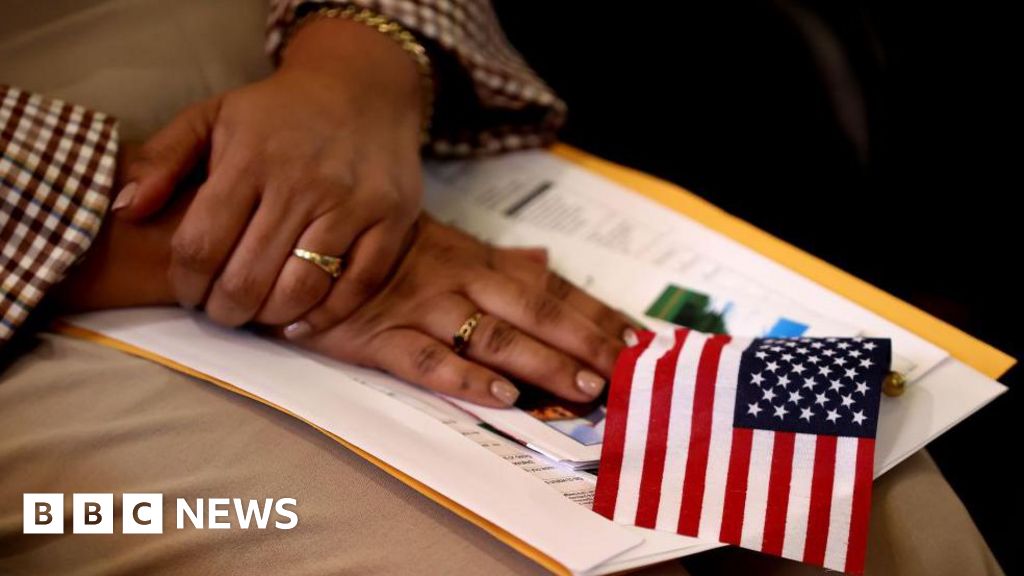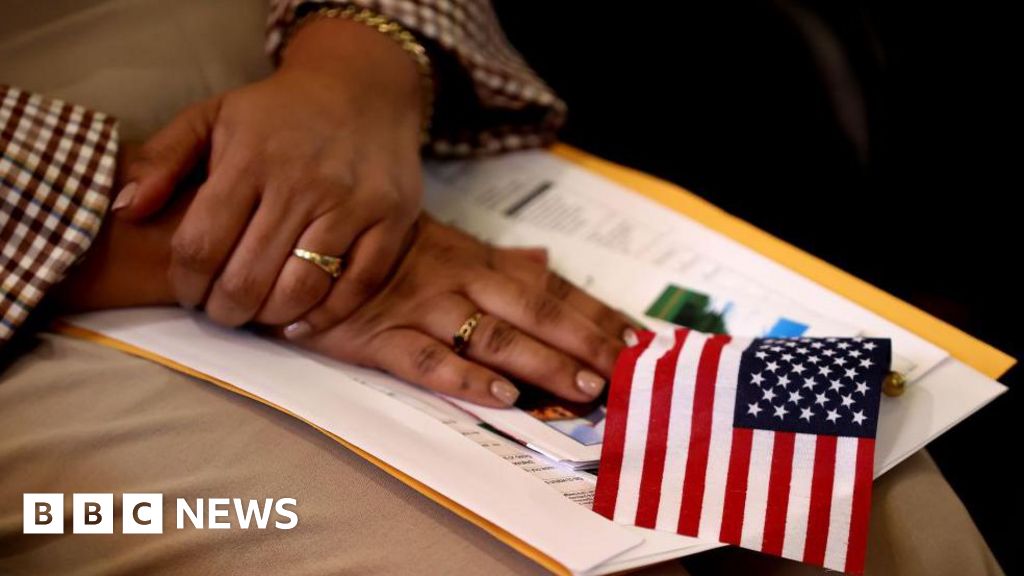
On Saturday morning, approximately a dozen of us entered a US immigration office in Virginia, individuals from various parts of the globe eager to take the final step toward becoming American citizens.
We held our naturalisation notices tightly as we passed through security and lined up at the check-in area. Shortly, we would raise our right hands and pledge the Oath of Allegiance to the United States during a ceremony characterized as both solemn and festive. With small American flags in hand, we anticipated walking out as new citizens.
However, we were suddenly informed that the ceremony had been cancelled due to the government shutdown.
“You should have received notification,” remarked the staff member at the desk.
None of us had been informed via email or phone call. The personnel at the entrance had allowed us in without warning, suggesting they too may have not been alerted.
Later, when I visited the US Citizenship and Immigration Services (USCIS) website, it was temporarily unavailable.
Upon its return, I discovered that my appointment had been cancelled days prior “due to unforeseen circumstances.” If you hadn’t checked the site yourself, you would have been unaware.
“We apologize for any inconvenience this may cause,” the notice stated.
Disappointment around me in the office rapidly morphed into confusion.
A woman wearing a hijab quietly inquired if I had also been turned away, concerned it might have been due to her attire.
A man had gathered his family to celebrate his final step toward becoming a US citizen, only to leave anxious and uncertain.
A few individuals appeared genuinely alarmed, contemplating how the delay could impact their careers, lives, and plans.
This situation was more than just an inconvenience.
Some of us had invested years navigating through paperwork and interviews, along with preparing for the citizenship examination. After more than ten years of holding a green card, I had made the decision to become a citizen and vote. All of us were now left in a state of uncertainty.
At the office, we were instructed to return on 1 November. However, with the ongoing federal shutdown, there’s a possibility that could change.
The immigration service primarily relies on application fees for funding, allowing it to typically remain operational during a government shutdown.
Nevertheless, its director, Joseph Edlow, stated in a post on X that public-facing services such as interviews and naturalisation ceremonies might be delayed. He added that the agency “regrets any negative impacts but must ensure compliance with the law”.
It remains unclear how many USCIS appointments or oath ceremonies have been cancelled across the nation. The service maintains a webpage listing field office closures, but does not provide totals for cancelled ceremonies. Anecdotal reports have emerged online about other oath ceremonies being cancelled.
What remains uncertain is when the government will reopen.
Since 1 October, Republicans and Democrats have been at an impasse over government funding, resulting in a shutdown that has left over 700,000 federal employees on unpaid leave.
Considering the numerous rapid changes made to US immigration policies in the past nine months, the anxiety among those of us striving to become American citizens continues to increase. The ramifications of a stalemate in Washington are extending into the daily lives—and potentially the futures—of those of us aspiring to make the US our permanent residence.

